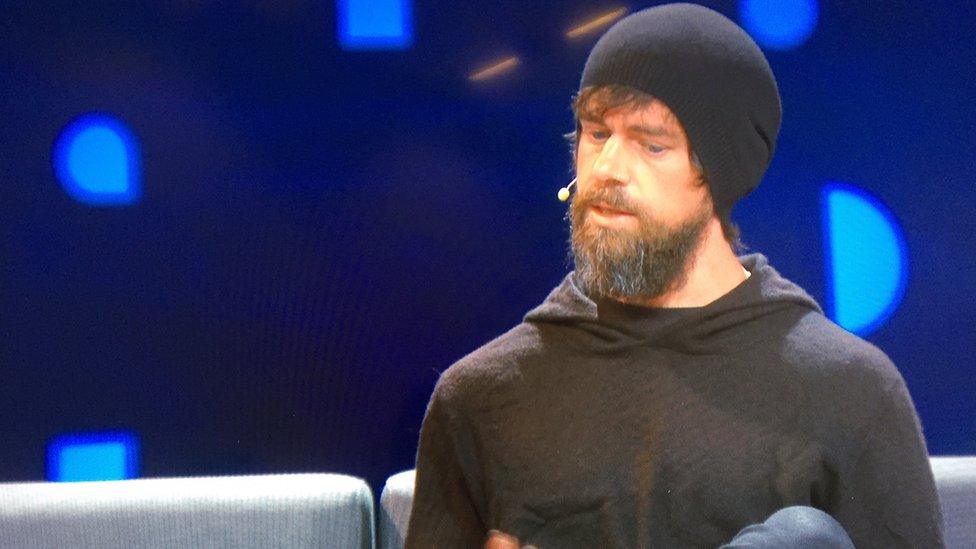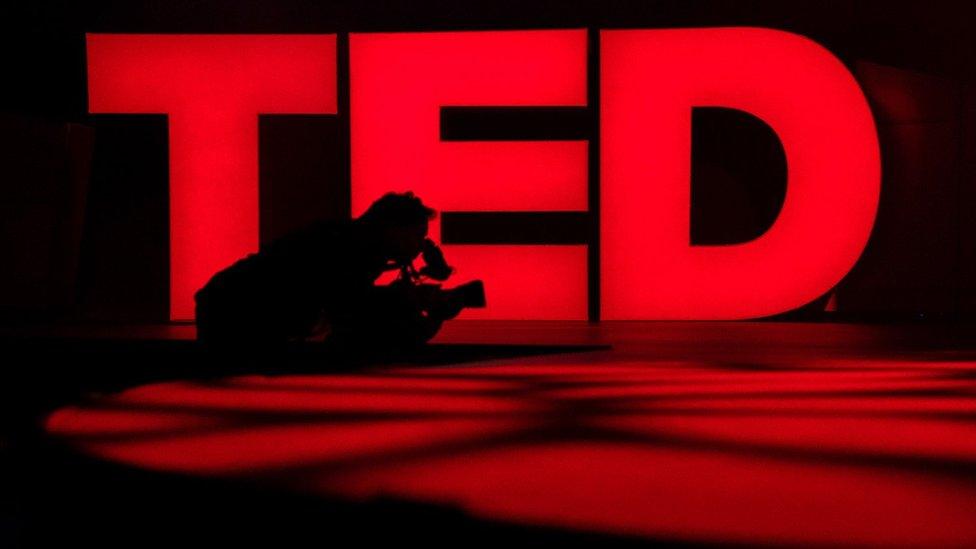TED 2019: Prize to online classes project causes controversy
- Published

Upstart offers online lessons, and says it is something children should do with their parents
The TED talk organisers have announced the Audacious Project, a $280m (£215m) prize fund to be shared across eight projects it feels tackle the world's toughest challenges.
But already one of the recipients of the funding has been criticised.
Waterford Upstart plans to provide online pre-school education to 250,000 children in the US.
The Campaign for a Commercial-Free Childhood (CCFC) has called on TED to reconsider the award.
The row coincides with the TED2019 conference - a week of presentations themed on technology, entertainment and design in Vancouver, Canada.
Open letter
The Upstart project started in Utah and is now in 15 other US states. It offers a daily programme of screen-based activities lasting 15 minutes to children from low-income families or rural communities, who would otherwise not be able to receive early-years education.
It says there are 2.2 million children each year who do not have access to any publically-funded early-education programmes in the US. The charity says it wants to help make sure all children enter school on an equal footing.
For those who cannot afford them, the project provides both devices and internet connectivity.
However, in a statement issued to coincide with the launch of the prize fund, the CCFC, in conjunction with Defending the Early Years (DEY), wrote an open letter to TED.
"Firms like Upstart are poor substitutes for high-quality education, and funding online programs instead of high-quality early education will make inequality worse, not better," it read.
Nancy Carlsson-Paige, an educational professor at Lesley University in Cambridge, Massachusetts, added in the letter: "Kids learn by playing, exploring and interacting with adults - not by memorising letters, numbers and colours presented to them on screens."
In response, Upstart told the BBC that it was not an online platform but instead promoted "kindergarten readiness".
"We fully believe children need to learn through play, but technology is a wonderful tool if used correctly," it added.
Police bias
In total the Audacious Project has raised more than $280m, from a vast range of organisations and individuals, including the Skoll Foundation, Virgin Unite and Dalio Philanthropies.
At launch, TED curator Chris Anderson said that each one of the winning projects had been "vetted".
"At a time when many people are fearful about humanity's prospects, these projects offer a beautiful counter-narrative of ingenuity, determination and hope," he said as he announced the winners.
The other winning projects are:
Center for Policing Equity, which plans to use data capture technology to eliminate racial bias in policing
Educate Girls, which is partnering with 35,000 volunteers in remote rural communities in India to keep girls in the classroom
Institute of Protein Design, which wants to harness the power of proteins to create the next generation of medicines and materials
The Salk Institute for Biological Studies, which is looking at how plants can help slow climate change
The End Fund, which proposes to bring de-worming treatment to 100 million people who have parasitic worms as a result of infected water
The Nature Conservancy, which wants to buy up the debt of 20 island nations in exchange for government's commitment to using the savings to protect 30% of its marine areas
Thorn, which wants to develop technology that will stop the spreading of images of child sexual abuse online
- Published17 April 2019

- Published16 April 2019

- Published15 April 2019
